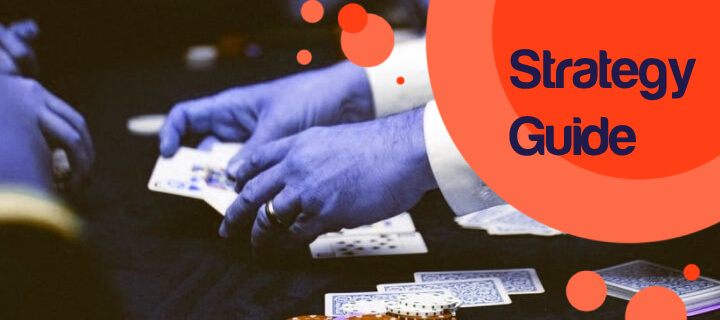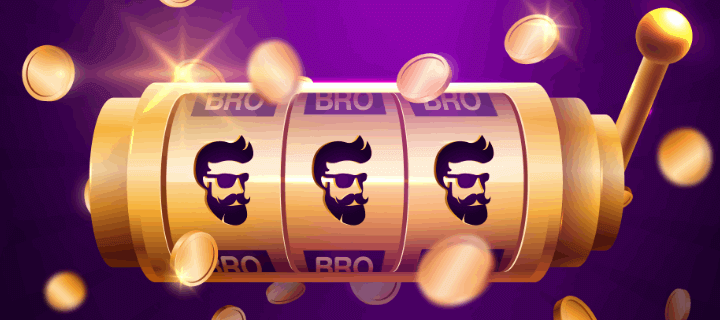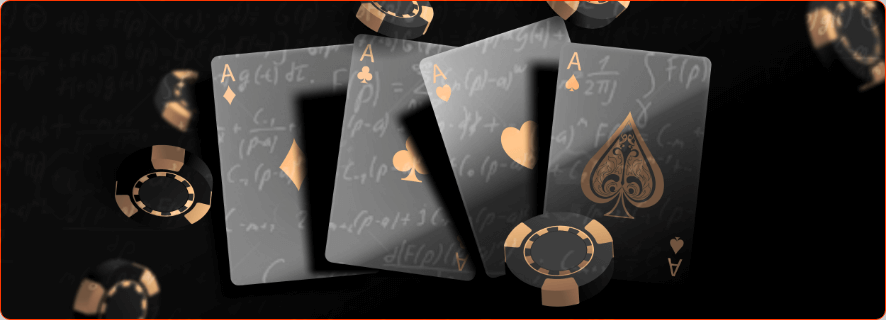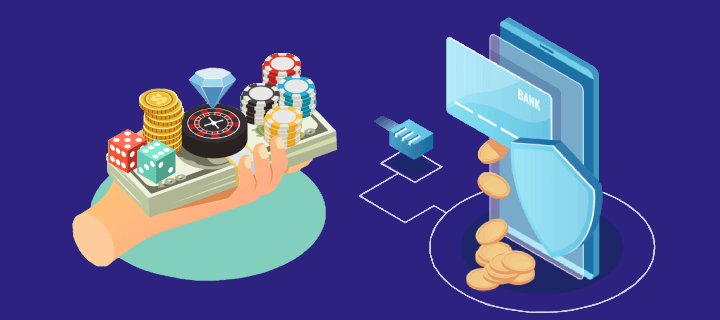Every Beginner Should Be Aware of These 16 Essential Poker Tips

Finding beginner poker advice that genuinely help you win money is difficult. When trying to learn the game, there is so much confusing information out there that it might be frustrating. The majority of Texas Hold’em advice focuses on how to play poker rather than what makes someone a winning player.
My goal with this essay is to help you get started playing poker on the right foot by telling you what I wish I had known when I first started. Learning each of these 16 beginning poker guidelines should make learning poker strategy much easier by avoiding the traps that so many newcomers make.
1. Luck Isn’t a Real Thing
If you want to improve your chances of becoming the best player possible, you must leave your faith in luck at the door. Don’t get me wrong: in the short or even mid-term, anyone might be fortunate or unlucky, and exceed or fall short of expectations. What you must not believe in is the idea that someone’s good or bad luck is predetermined.
In poker, there is no space for superstition. It only leads to a life of dissatisfaction and discontent. Otherwise, the first large downswing may make you think in a cosmic conspiracy, or that the poker Gods simply don’t like you.
Please believe me when I say that this is a good idea. You are in charge of your own fate, and if you are prepared to put in the effort and manage your bankroll properly, winning at poker is ultimately a numbers game.
2. Mental Toughness Is More Important Than Skill
What distinguishes the top poker players from the rest has little to do with their ability to play the game. In reality, the mental aspect of poker has been the undoing of some of the game’s most brilliant players. Your victory rate will suffer no matter how good you are if you don’t have the correct mindset.
Mental toughness is the most common attribute shared by all successful poker players. You have tilt difficulties if your short-term results are hurting the quality of your decisions. You can get to where you want to be in poker faster if you address those challenges quickly.
3. Everyone should start with cash games.
Even if tournaments are your preferred format, it is imperative that you at least become proficient in cash games. Because there is no prize pool or ICM, each +EV or -EV decision you make affects your win rate directly. You can sometimes get away with a few leaks in tournaments. In cash games, the same leaks will swiftly deplete your bankroll.
Cash game gamers are the top players in the world for a reason. Today’s games are more difficult to master than ever before. Almost all really good cash game players can dominate tournaments, but even respectable tournament players are rarely able to compete in lower stakes cash games.
Before going on to MTTs or any other format, if you are in a hurry to make tournaments your bread and butter game, I recommend that you first be able to beat at least 50NL over reasonable sample size. Beating small or even mid-stakes tournaments will be like shooting fish in a barrel if you put in the time and effort. Literally. You’ll be able to thank me later for this suggestion.
Must Check: How Much To Invest In Poker
4. Monster Hands Don’t Win a Lot of Money
Understanding that everyone makes a lot of money when they have a monster hand is one of the keys to learning how to win at poker. In fact, playing poorly with big hands is quite difficult. One of the ways reciprocity works is through this concept. In every poker situation, the differences between what you and your opponents do determine your final score.
When we do something better than our opponents at poker, we make money in the long run. Because monster hands are on everyone’s radar, even the most inexperienced players put a lot of effort into playing them properly. Meanwhile, many players neglect less obvious profit opportunities. Being stronger at blind theft or blind defense with marginal hands, consistently making better value bets, and reacting to opponents more efficiently than your opponents are some examples of areas where the greater profit may be made.
5. Have a good time, not for the money.
If the thrill of winning money at the tables is all that matters to you, poker is probably not the game for you. Burnout is a serious problem that will affect everyone who does not have a natural passion for what they do. It’s the same as any other job. If you don’t enjoy what you do, you will eventually come to despise life.
You must answer this question truthfully. Would you continue to play if there was only free poker available? If you answered yes, you have what it takes to be successful in the long run.
I’ve played millions of hands over the last ten years and still get a stomach pain if I’m not playing for more than a few days. I enjoy the complexity and the fact that every hand I play teaches me something new. It’s up to you to figure out what keeps you coming back to the game so you can concentrate on mastering that area. Success will follow if you become an expert and do exactly what you love.
6. Physical cues are exaggerated
If you’ve ever watched people play poker in movies or on TV, you might think that learning someone’s “tell” is the key to winning. While physical mannerisms do occasionally influence a live player’s decision-making, they are only a small part of the jigsaw when it comes to hand-reading and adjusting to other players. Learning timing tells and betting patterns, on the other hand, are far more dependable indicators of what your opponents are up to.
You might notice, for example, that an opponent bets modest with powerful hands and big while bluffing. This type of information is priceless, and it should be recorded using proper note-taking techniques while playing. Here are a few more “tells” to be aware of:
Taking a long time to act, then placing a large wager or escalating the stakes
Be on the lookout! Almost always, this is a sign of strength.
Waiting a long period before acting and then double-checking
This usually indicates that the player has a weak hand or a draw and does not want anyone to bet on it. They take a long time to “sell” the fact that they are powerful.
Investing for an unusual sum
If you see someone buy-in for $39.26, you can bet it’s their entire bankroll and they’re ready to risk it all.
openly criticizing the way others play
These are usually average players who have read a few books. Chronic complainers believe they already know how to play ideal poker, so pay attention to what they say and you’ll be able to figure out how they play hands.
7. There Is No Such Thing as Poker Talent
Nothing irritates me more than hearing someone describe a successful person as talented. As though they were born with all of the necessary abilities to succeed. When someone criticizes someone else’s talent, they are really making an explanation for why they aren’t as excellent at that game or sport!
If you look closely at any highly successful individual, you will notice that they all have one thing in common. They’ve all put in more time studying, practicing, and perfecting their skills than their peers. Michael Jordan, Wayne Gretzky, Larry Bird, Ben Hogan, Jerry Rice, and Pelé are just a few examples of people who worked harder than everyone else in their time. Do any of those names sound familiar? Do you believe it was because of their “skill” that they were so successful?
Knowledge, practice, and aptitude are the three components of the skill. You can’t do much about aptitude, and it’s overrated in my opinion. Understanding your inherent talents and weaknesses, and then applying them to your poker playing, is the key. Some people excel at arithmetic and mathematics, while others excel at understanding people, soaking up information, and putting in long hours. In all areas of aptitude, everyone is competent to some degree. Those that train according to their talents are the most successful. This brings us to our next point.
Must Check: What If Card Is Exposed
8. Learn the game and become a student of it
Because you’re reading this, you’re presumably the type who recognizes the need of study in achieving success in any endeavor. To succeed at poker, you must always improve and seek to reduce your leaks. The easiest approach I’ve discovered to achieve this is to break the game down into smaller, more manageable chunks. It’s better to focus on one item at a time rather than trying to do everything at once.
To use chess as an example, there are always two games going on at the table. There’s the overarching strategic game, which is quite rigid and built on tried and true fundamentals that have been demonstrated to lead to victory. The tactical game, on the other hand, is more dynamic and executes a player’s plans within the parameters of the strategy. To put it another way, knowing how money is generated and lost leads to a strategy, which then leads to insight into how to create a profitable game plan.
To summarise, the greatest method to develop is to study and grasp the advanced basics of poker strategy first, then play a simple tactical game. Then, as you get more skill, you can gradually expand your repertoire to include more sophisticated plays. For instance, you might start by learning the most basic aspects of the game, such as open-raising ranges and bet sizings. Later on, concentrate more intently on more complex features such as the 3-bet/4-bet game.
I recommend a few software programmes to help you with your research.
- Tracking Software for Poker
There is no way around it: every professional player needs poker tracking software in order to effectively assess other players’ and their own results. Hold’em Manager 2 is my all-time fave.
- A Calculator for Equity
You can use poker equity calculators to compare the equity of different hands or ranges. Developing the ability to recognise your likely equity at any given time is critical to your success.
- Software for Hand Analysis
If you’re a true poker nut like me, you’ll want to invest in hand analysis software like Cardrunner’s EV. Pre-flop and post-flop, the application allows you to do dynamic multi-street equity and EV computations.
- Software for Table Management
It is quite beneficial for online poker players to automate their table arrangement as well as many of their actions. As a result, you’ll be able to concentrate more on playing and less on setting up your session.
9. Learn a basic poker strategy.
I’m sure you’ve heard that one of the most important talents to learn as a poker player is the ability to adjust to your opponents. Even so, you must have a baseline from which to adapt before you can adjust. This is what I refer to as a “vacuum approach,” which simply means how you play when you have no information.
Beginning with a very basic game plan is the greatest method for new players to get started crafting their own Texas Hold’em approach. Then, as you acquire experience, gradually incorporate more advanced principles. You’ll be exploiting your opponents like a pro in no time.
10. Create a Poker Strategy
Following a routine in poker, like any other activity or sport, is the greatest way to ensure that you are sticking to the fundamentals and optimizing your EV. You can either create your own approach or follow the REM process, which stands for “range, equity, and maximize.” It was explained in Professional No-Limit Hold’em, which is one of the best poker books ever written in my opinion.
If you want to attempt something a little easier, I created my own three-step poker procedure. Please feel free to use it in your own game.
11. Become a Game Selector
This is perhaps the most crucial poker tip for increasing your win rate. Table selection is one of the fundamentals you must learn in order to win at poker. Surrounding yourself with people who are less skilled than you is the key to making money at poker. As a result, table selection will most likely be the most important aspect in your table success. It can mean the difference between being a top winner at your stake and a middling break-even player if you know how to choose which seat to occupy. At any particular level, the biggest earnings are not always the best players. Those that consistently select the seats that are most profitable are the ones who flourish and have the best win rates.
Most poker sites keep table statistics that you can look at when looking for new tables to join. If you don’t have any other options, attempt to sit at tables with the highest average VPIP. Here’s an example of how it may appear:
12. Make Certain You Understand Where Your Money Comes From
Gaining a knowledge of how money is earned in poker is one of the most critical things a novice must master in order to maximise their potential. Apart from playing against opponents that are weaker than us, we must also aim to make the most profit from every move we take. “Expected value” refers to the total amount of money won or lost.
While luck may play a role in a few sessions or even thousands of hands, the players who make the best quality judgments hand after hand will eventually have the highest win rate. It’s all about the long game, with a focus on poker as a long-term investment rather than a get-rich-quick gimmick. Studying the principles of poker is the best approach to learn to win.
13. It Isn’t Right To Be Tight (Except When It Is)
This is a phrase that you’ll hear every now and then. My advice is to disregard that false tip and instead learn to grasp that winning at poker is all about playing a style of game that best matches the “table dynamic,” which is mostly decided by the types of opponents you are currently playing against at any given table. That usually requires playing in the opposite way as the other players, with the objective being to learn to profile them and take detailed notes.
In general, when playing at a table with loose opponents, you should stick to a pretty simple and tight strategy. When they overcommit with subpar hands, you can typically dominate their weak ranges and earn value. The objective is to play error-free poker and profit from the mistakes of other players.
If your opponents are tight, on the other hand, you should do the reverse and play very loose in order to capitalize. This frequently takes the shape of a powerful stealing strategy, in which you win by fighting for the blinds aggressively while your opponents wait for strong cards.
14. Always Keep Aggressive Play in Mind
One of the most important things to grasp is first fold equity. In a nutshell, it’s the amount of money won through aggressive behaviors like betting or raising. It is not necessary for you to reveal your cards. You’re missing out on a lot of money if you never bet or raise.
Based on the money obtained through fold equity, you should always choose aggressive play first when considering an action in poker. You should only consider a passive move like checking or calling if the aggressive play isn’t beneficial.
In general, if an aggressive play pays off, it is almost always the best option.
15. Your bankroll grows faster than your skill level.
Some players feel irritated and even quit poker because they try to increase their stakes too rapidly. A strong, simple strategy may be taught fast, and the micro-stakes can fly by for some of the most committed players. Everyone’s learning development slows down at some time, and a barrier is often reached that cannot be readily overcome. This normally happens at 50NL or 100NL in my experience.
If you suddenly start losing after performing so well for the first part of your poker career, it’s tempting to become results-oriented and believe something is wrong with you. This results in many heads crashing into the wall, as well as emotions of failure. The issue, if you want to call it that, is that bankroll grows quicker than skill level.
The idea is to take it easy for the first few months (or even years) and concentrate on improving rather than aiming to become the next high-stakes legend. My proposal is that you use a technique similar to the stairs cashout strategy, which will slow your ascension through the stakes sufficiently that your improvement as a player will hopefully stay up with your stakes progression. Slow and steady absolutely wins the race in poker.
16. As much as possible, play in a position
The most important poker rule is to aim to play in a better position than your opponents. This offers you an advantage in terms of information, which will help you succeed. There are a few other reasons why playing in position is so effective:
Controlling the Pot Size
Because you’re in last place, you get to select whether or not the last stake goes into the pot.
More Opportunities for Bluffing
When no one else appears to be interested in a pot, the last person to act usually wins it with a bluff.
It’s A Lot Easier To Get Value
When you have a powerful hand, being able to act last ensures that you can bet on each and every street. Your opponent can choose to pot control and check back when you’re out of position.
Poker is a difficult game. Because there is so much misinformation and outright false information out there, being a successful player is more difficult than ever. The purpose of these 16 beginning poker tips was to assist beginners and intermediate players in getting a leg up on the competition by knowing what the top pros know.
I’ll give you one last bit of bonus advice: don’t take yourself too seriously. There are many poker players who believe they are God’s gift to the game. That kind of arrogant arrogance leads to underachievement. The sooner you can get rid of your ego from your game, the sooner you can focus on improving and “pwning” your opponents.



